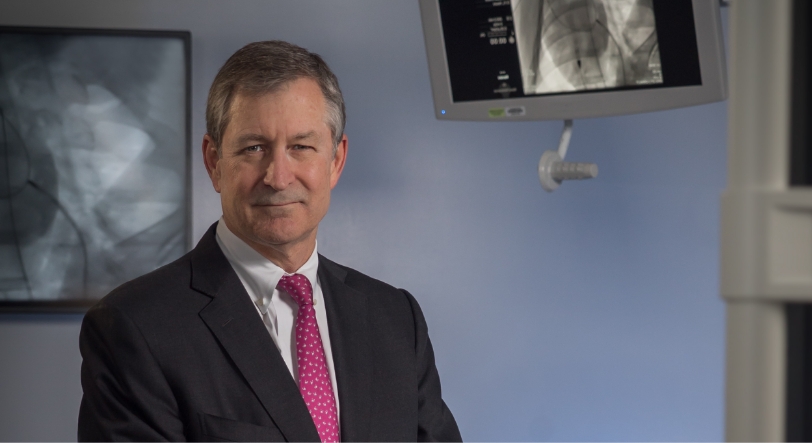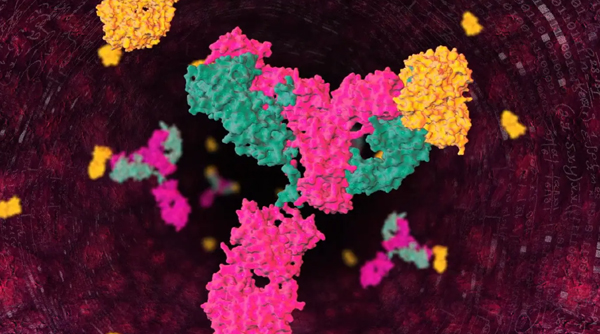Science in Service
of
Medicine
President's Letter
Metrics 2019
Cycle of a Cure
Discovery to Clinic


Introduction

Precision Medicine


Introduction

Tracing Tau to Tackle Alzheimer's Disease

Translational Imaging Center Revamps for Revolutionary 7T MRI

Hope for Slowing ALS

The Heart of Progress: Innovative Valves Create a Legacy for the Future

Test-Driving Carbon Fiber Materials in Space

Lab-on-a-chip Shines Light on Bystander Effect

Creating an Antibody to Fight Silent Killers

A New View of Strep

Translational Luminaries
result



President’s letter
2019 Metrics
Cycle of a Cure
Visionary Gifts

Discovery to Clinic

Innovative Education

Translational Luminaries
Introduction
Building Blocks for Bone Regenration
RNA Therapeutics
Mobile App for Healthy Habits for Breast Cancer Survivors
Designing a Flexible Approach to Breast Reconstruction
Introduction
Tracing Tau to Tackle Alzheimer's Disease
Translational Imaging Center Revamps for Revolutionary 7T MRI
Hope for Slowing ALS
The Heart of Progress: Innovative Valves Create a Legacy for the Future
Test-Driving Carbon Fiber Materials in Space
Lab-on-a-chip Shines Light on Bystander Effect
Creating an Antibody to Fight Silent Killers
A New View of Strep
result

The Heart of Progress
Innovative valves create a legacy for the future
DeBakey Heart & Vascular Center milestones throughout the years

1953
Michael DeBakey, MD, performs first successful removal of blockage in the carotid artery, establishing the surgical treatment of stroke.

1964
DeBakey performs first aortocoronary artery bypass.

1968
DeBakey performs first multiple-organ transplant of a heart, lung and both kidneys from one donor to four recipients.

1980
Houston Methodist doctors perform first angioplast.

1987
Houston Methodist recognized as first Medicare-designated heart transplant center in Texas and one of first nationally.

1998
Michael Reardon, MD, performs first successful autotransplant for cardiac malignancy.
2001
Michael Reardon, MD, performs first successful autotransplant for cardiac malignancy.
2008
Center is among first to repair a leak surrounding a patient’s mitral valve through a small puncture in the groin.
2011
Center launches DeBakey Institute for Cardiovascular Education and Training (DICET), first-of-its-kind in the nation.
2016
1,000th transcatheter aortic valve replacement (TAVR) performed. Texas A&M and Houston Methodist announce EnMed.
2017
1,000th heart transplant performed in collaboration with J.C. Walter Jr. Transplant Center.

Michael J. Reardon, MD
The study, which compared outcomes for transcatheter aortic valve replacement (TAVR) with those of open heart surgery, indicated that the minimally invasive procedure—initially used to help high-risk, older patients avoid open heart surgery—also offers a safer option for lower-risk, younger patients. TAVR is now poised to become the new normal, pending FDA approval of the procedure for low-risk patients.
Houston Methodist is at the forefront of history…again. The cover of April’s
Cardiology
News
proclaimed “Historic Moment: Two trials crown TAVR over surgery” and featured Houston Methodist heart surgeon Michael Reardon, MD, speaking to an audience of thousands of cardiologists at the American College of Cardiology conference. He was sharing results of a highly acclaimed study in The New England Journal of Medicine.
Rate of death or stroke
After 30 days
Surgery
TAVR
0.8%
After 2 years
Surgery
TAVR
“Transcatheter aortic valve replacement is expected to become the new standard within a few years,” said Michael J. Reardon, MD, Allison Family Distinguished Chair of Cardiovascular Research, Houston Methodist DeBakey Heart & Vascular Center, and professor of cardiovascular surgery. “At that point, procedures will probably increase from 60,000 to 100,000 in the U.S. annually.”
More than 1,400 patients in seven countries were enrolled in the study, which used a Medtronic valve for the procedures. Results included the rate of death or stroke after 30 days (0.8% for TAVR compared to 2.6% for surgery) and after two years (5.3% for TAVR compared to 6.7% for surgery). Additionally, most patients can return home within 48 hours, with recovery taking about a week. Traditional open heart surgery often requires weeks, or months, to recover.
More from Discovery to Clinic
Contact Us
© 2021. Houston Methodist, Houston, TX. All rights reserved.
Privacy & Disclaimer
.











